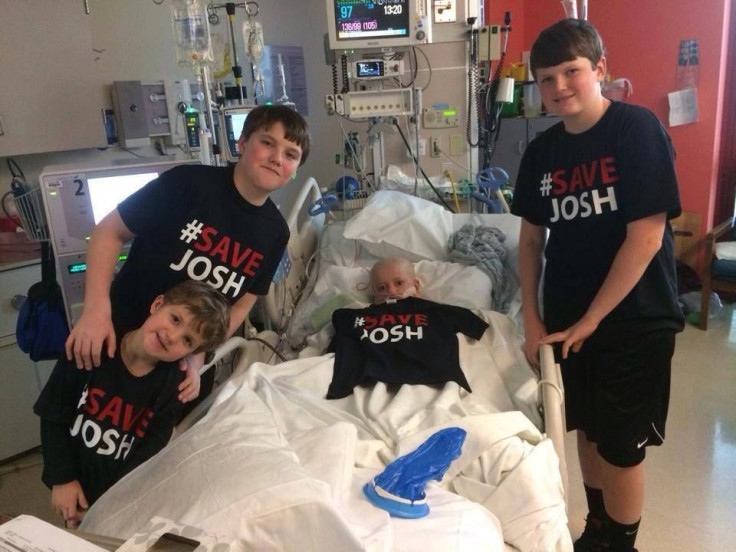Brincidofovir, Experimental Antiviral Drug, Saves 7-Year-Old’s Life, Though Too Late To Save His Kidneys

A brisk stroll to the apothecary proved insufficient for 7-year-old Josh Hardy of Memphis, whose parents launched a national campaign to secure access to an experimental drug as standard therapy for adenovirus failed to quiet the infection.
After receiving just three doses of brincidofovir beginning last week, Josh continues to recover markedly from heart and kidney failure, though his kidneys may be permanently damaged. Levels of adenovirus in his blood fell to from 250,000 copies per milliliter to 367, hospital administrators announced this week.
"We expect it will be out of his system by Tuesday," Aimee Hardy, the boy’s mother, told CNN last Friday. "I'm beside myself with how effective this drug was so quickly.”
Josh’s transformation over the past few days has been dramatic, Hardy said, particularly given the recent vigil family members held as the boy vomited uncontrollably, several times per hour. Josh contracted the virus last month after cancer treatments left his immune system weakened, and the lone antiviral available proved ineffective. Desperate to try something new, Hardy and her husband requested a supply of the experimental drug brincidofovir from producer Chimerix, of Durham, N.C.
Though the company initially refused to supply the drug, regulators from the Food and Drug Administration brokered a deal to allow the data to be used toward the company’s application for approval. Kenneth Moch, the drug maker’s president, said Chimerix has since responded to several patient requests for the drug, which they hope to soon bring to market.
Yet the damage has been done already to Josh’s kidneys, which may require dialysis for the rest of his life, according to Hardy. "What if he has to be on dialysis long-term?” she told CNN. “If he could have gotten the brincidofovir earlier, it could have been avoided. That will always bother me.”
Chimerix says the new drug, an oral nucleotide analog, has shown promise against all five families of double-stranded DNA viruses affecting humans, including adenovirus, cytomegalovirus, BK virus, and herpes simplex viruses. The drug was initially developed by the federal government as part of a biodefense program prepping against possible terrorist use of variola virus or smallpox, the latter of which is held only in store for experimental purposes by the United States and Russia. The drug is particularly promising for people with weakened immune systems, experts say.
Published by Medicaldaily.com



























